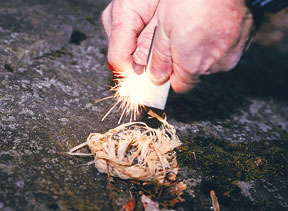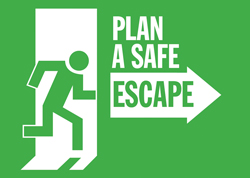 When disaster hits, self-reliance is the only thing you can count on. If you know what to do in any given situation, it will remove fear and replace it with knowing what to do in that situation for the best possible outcome. In other words: having the skills to deal with different situations.
When disaster hits, self-reliance is the only thing you can count on. If you know what to do in any given situation, it will remove fear and replace it with knowing what to do in that situation for the best possible outcome. In other words: having the skills to deal with different situations.
Knowing what to do in the event of a disaster isn’t something you need to learn and then set aside. It’s something that you need to keep fresh in your mind. The reason is because when disaster hits, the training steps you need to take that you learned a few years ago can be hard to recall in depth.
But by staying prepared, you’ll be ready to keep yourself and your family safe. Knowing how to survive in any situation should become as natural to you as breathing.
Studies have shown that people who are unprepared in survival situations often give in to shock.
They freeze and don’t know what to do. But if you’ve drilled until survival training is second nature to you, you’ll be able to act with confidence to deal with whatever was thrown at you.
What Kind Of Survival Training?
What kind of survival training should you use to prepare yourself?
Have a survival drill in place like you would a fire drill. Everyone should know where to go and when. You should have supplies lined up and already geared to go in backpacks so that when you need to bug out, you can as quickly as possible.
In the event of a disaster such as a tornado or earthquake and you can’t get to your supplies, you must have a backup plan in place. You have to know survival training to the extent that you can make do in primitive situations.
You want to know how to quickly set up shelter – whether it’s through using material you were able to bring with you or by using what you can find on the land. You’ll want to know how to cook food and how to keep your family safe in the event you have to go off the grid.
Did you know that in most households today that rely on canned goods for food, if the electricity goes out, those people can’t get that food open because they don’t have a manual can opener? By relying on things like electric companies, supermarkets and banks to enable you to meet your family’s needs, you could be in trouble if they suddenly shut down.
 Practice your escape routes and meet up places. Make sure that you know an alternative source of food, of lighting, and of warmth. You should train how you’ll be able to communicate if the power is suddenly gone or mass communication is disrupted.
Practice your escape routes and meet up places. Make sure that you know an alternative source of food, of lighting, and of warmth. You should train how you’ll be able to communicate if the power is suddenly gone or mass communication is disrupted.
You need to know how to provide for your sanitation. You need to know how to get a safe water supply available to you and your family. You need to know how to be safe from natural threats as well as threats from people who would jeopardize your safety.
You can learn survival skills on your own via sites like Survivalist Scene and guides teaching you specific skills (like setting up a shelther, scrounging for food, etc).
Or you can invest in training from a survival company.
Whichever one you choose to do, disaster preparedness skills are skills that should be continually honed so that when the time comes, you’ll know exactly what to do.